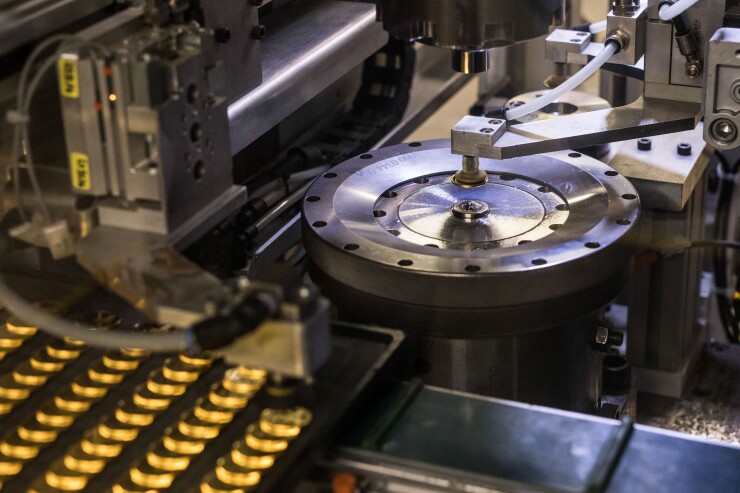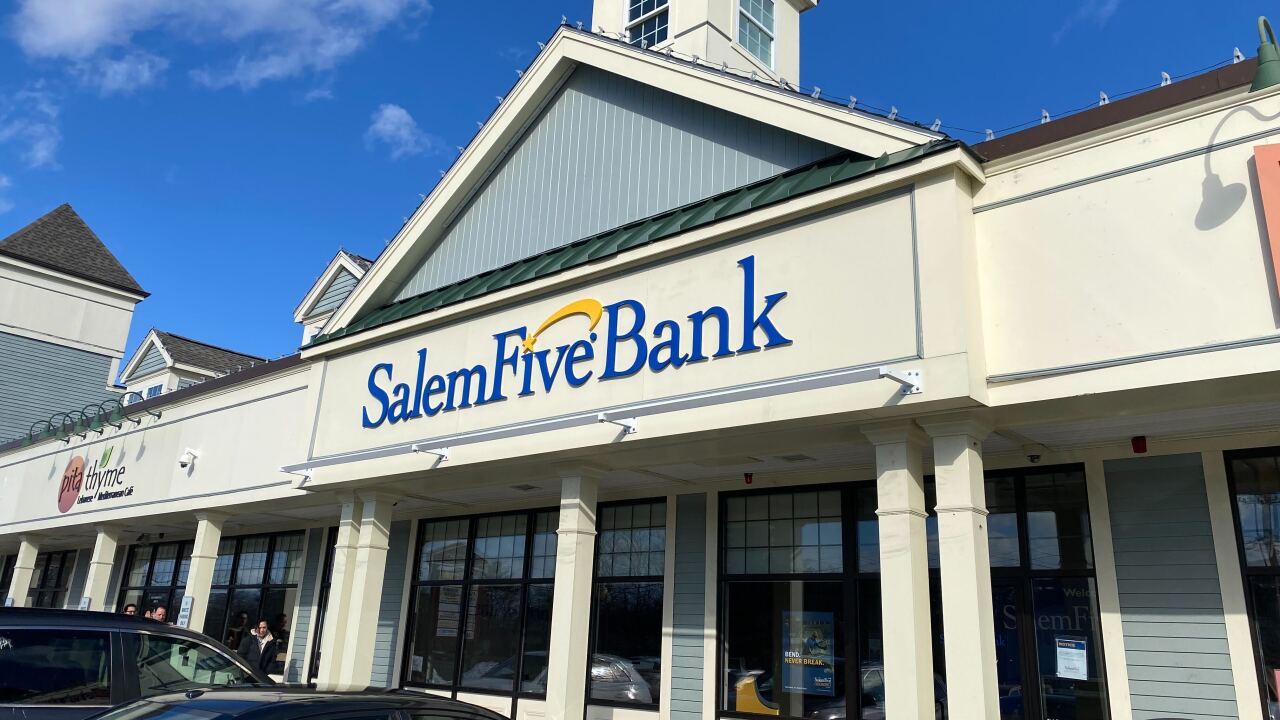Move over, bitcoin: There's a new digital gold in town.
The United Kingdom's Royal Mint, the entity that strikes British coins, has teamed up with CME Group to create a blockchain-based platform for electronically buying, selling and holding spot gold.
Unlike bitcoin and digital currencies, this digital gold product, known as Royal Mint Gold, or RMG, is backed by more than just innovative cryptography.
"An RMG is a digital representation of real gold sitting in the Royal Mint vaults," Sandro Ro, CME Group's head of digitization, said in a blog post. "There is no rehypothecation, there is no lending on that gold, there will be enough physical gold to represent all the RMGs that are issued."

The platform, currently in live testing with a number of market makers, is aimed at financial institutions and has the potential to make gold trading faster, more transparent and safer. One party will be able to transfer gold to another instantly anywhere in the world.
"Distributed ledger technology is a game changer and supplying gold on a blockchain has been something The Royal Mint has wanted to develop for some time," said Vin Wijeratne, The Royal Mint's chief financial officer.
The Royal Mint is planning to fund the full RMG product, when it launches in the summer of 2017, with as much as $1 billion in gold bullion.
To develop the platform where institutional clients will trade RMGs, CME Group has partnered with the financial services infrastructure firm AlphaPoint. While RMGs will trade on a permissioned private network, the
That means that outside developers and researchers are able to view the code and verify its quality.
BitGo, a startup that pioneered the use of multi-signature technology for bitcoin wallets, has also had a hand in developing the RMG blockchain. BitGo's wallet, which offers greater security for users' digital funds by requiring more than one person's authorization in order to move money, will be used for RMG, said Mike Belshe, BitGo's CEO.
Whereas the ownership of assets is often opaque in traditional markets, blockchain technology offers a "higher level of traceability and audit" thanks to the immutable record of ownership it provides, said Igor Telyatnikov, the president and COO of AlphaPoint.
"It provides a brilliant view into transactions," he added.
Prova, the distributed ledger technology jointly developed by CME Group, AlphaPoint and BitGo, has applications beyond gold. It is designed for trading any commodity or "digitized physical asset" while meeting the governance and compliance standards required by financial institutions, according to its website.




